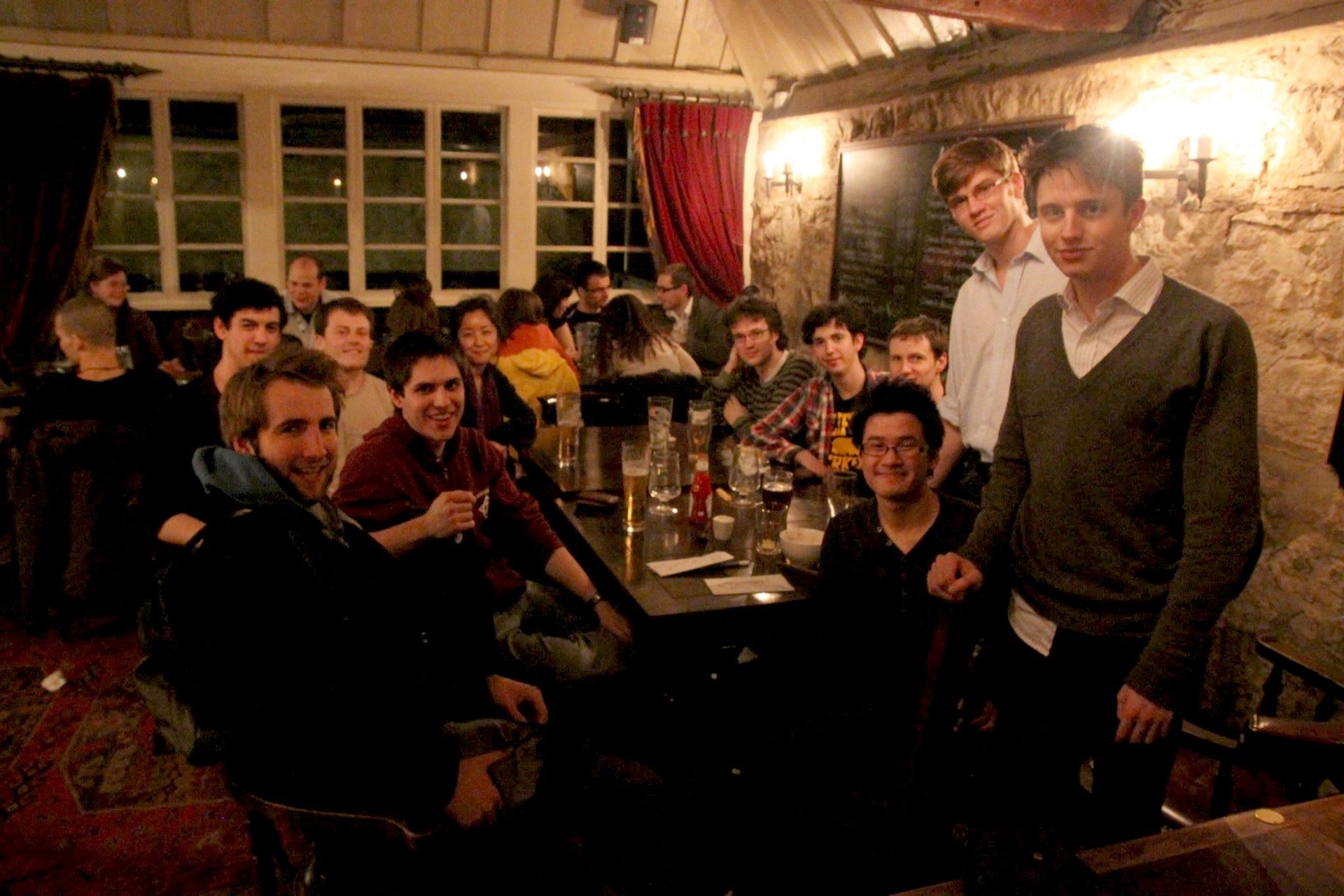Thesis printing and effective altruism ↑ all posts

I couldn’t sleep as long as I would have liked. I had to be in town as early as possible to submit my thesis for printing and binding. It’s now over four and a half years since I started my PhD (D.Phil. in the language of Oxford) and those years have been filled with diving into unknown areas of maths, robotics, and programming, weeks spent struggling to decide on research topics and directions, all night paper writing sessions pre-conference submission deadlines, and a huge number of compiler errors and robots disregarding my instructions and driving into walls at high speed. It was therefore a bit of an anti-climax to hand over a USB drive containing the final output from this process.
y work done for the day, I enjoyed spending time revisiting some of the places that had sustained me down the long road to thesis submission: the Missing Bean coffee shop on Turl Street, Blackwells bookshop near the Bodleian library, Ricardo’s in the covered market. What a relief to be back in these familiar places withou the dark cloud of fear and worry about finishing hanging over me.
That evening I met up with an inspirational group of friends from Oxford groups Giving What We Can and 80,000 Hours. Everyone’s interested in questions about effective altruism - what are the best ways of doing good, how can you do the most good with your time and money
Giving What We Can members have taken a pledge to donate at least 10% of their income to the most effective charities, and 80,000 Hours focuses on helping people with career decisions which will allow them to maximise the good they can do (through making large donations, or by working on high impact research areas, and so on).
I’d encourage you to check out the websites if you are at all interested in how to do the most good when it comes to charity. Have a play with Giving What We Can’s how rich you are calculator and what you could achieve if you donated 10% of your income.
As Holden Karnofsky of GiveWell says:
if you can look beyond something like “a person I love suffered from Disease X, so I want to fight Disease X,” and instead think “a person I love suffered, so I want to fight suffering,” you can do a lot more good for more people.